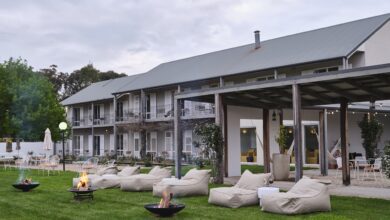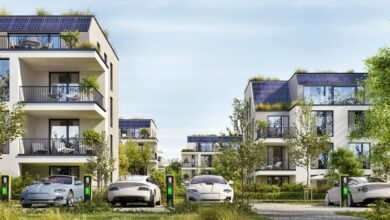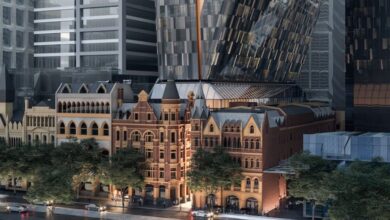
Something in the air for hotel success
Air-conditioning is as important to the Australian accommodation industry as comfortable beds
We might all love a sunburnt country but not its blazing heat when we’re paying for accommodation, and any hotel without a good air-conditioning system will find bookings go cold very quickly.
In a technological age consumer demand for the latest creature comforts is at an all-time high.
Lynda Kypriadakis, the Managing Director of building advisory company Diverse FMX, says people being able to turn on their air conditioning from their mobile phone half an hour before they come home has been the major trend in air conditioning systems in recent years and it has been readily adopted in the accommodation sector.
Winter is an opportune time to upgrade air-conditioning systems in Australia and 10 years is a good benchmark for hotels to evaluate if it’s time to upgrade. For machines using variable refrigerant flow – requiring less maintenance than fixed-capacity traditional systems – the lifespan can stretch to 15 to 20 years.
Warning signs to indicate equipment is reaching the end of its useful life, include rising maintenance costs and unplanned downtime.
If air-conditioning performance is waning, it is often because the property has overlooked basic upkeep, such as cleaning coils, washing the reusable filters, checking the electrical connections and inspecting the refrigerant lines.
Because an issue with air-conditioning is less obvious than things such as stained carpet, it can be easy to overlook but inefficient air-conditioning is costly.
Sensor equipment is becoming much more affordable along with advances in remote-control equipment that immediately detects when air-conditioning is not operating properly, allowing management to know of issues before guests.
The best advice when upgrading air-conditioning systems is to choose wisely.
The Australian Government’s Department of Industry, Science, Energy and Resources says that heating, ventilation and air conditioning (HVAC) systems typically account for as much as 30 per cent of a building’s energy use, so getting the best out of them is paramount.
Capital and maintenance costs of HVAC systems also comprise a significant proportion of building costs, but these can be minimised through good system design.
While significant energy and capital savings can be made through investing in new, high-efficiency HVAC systems, existing systems can also be optimised simply by fine-tuning controls and good maintenance practices.
Minor adjustments to thermostat set points can often be made, resulting in energy savings without reducing comfort for guests.
A range of more energy-efficient HVAC systems, some of which use passive heat transfer or low airflow rates, can halve mechanical HVAC energy use.
This can also yield substantial water and trade-waste savings, as HVAC systems are responsible for up to 30 percent of water use in commercial buildings. The best available reverse cycle air conditioners are about 30-40 percent more efficient than commonly available, “minimum standard” models.
Multiple component innovations are also being packaged into advanced rooftop air conditioners to deliver energy savings of about 17 percent.
Active solar thermal systems, a new type of heating and cooling system, use free solar radiation – available in Australia for a large portion of the year – to reduce peak demand.
Computer technologies will continue to enhance HVAC system efficiency, reliability and intelligence, as well as assisting integration with other building services. Accurate and reliable measurements enable efficient HVAC tuning and operation.
Lynda Kypriadakis says the first thing she would recommend as a project manager is that property owners have a mechanical engineering consultant involved early in any major air-conditioning upgrades.
“Unfortunately, a lot of bodies corporate listen to the contractor (the guy who is selling them the system) whether it’s a split system or wall-mounted inside the room or fully ducted and the guy trying to sell you something will have a conflicted opinion.
“When a building is approved for construction, there is an approved mechanical system that handles all the air conditioning system and ventilations which includes car park exhausts, stairwell pressurisation and toilet exhausts for example. If someone goes to upgrade the air conditioning system and they don’t consult with the mechanical engineer, they can breach the building approval.”
She said having a mechanical engineering consultant in place before any upgrades commenced would also ensure that cost-effective equipment was purchased.
Read more:
Grantlee Kieza OAM has won three Queensland Media Awards, two Australian Sports Commission Awards and has been a finalist for the Walkley and News Awards and for the Harry Gordon Award for Australian sports journalist of the year. In 2019 he received the Medal of the Order of Australia for his writing. You can find more of his work in our AccomNews & Resort News print magazines.
He has written 22 acclaimed books, including bestsellers Hudson Fysh, The Kelly Hunters, Lawson, Banks, Macquarie, Banjo, Mrs Kelly, Monash, Sons of the Southern Cross and Bert Hinkler.







